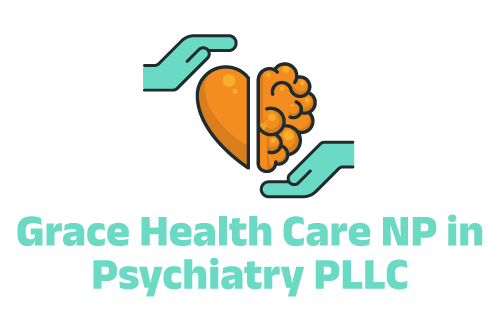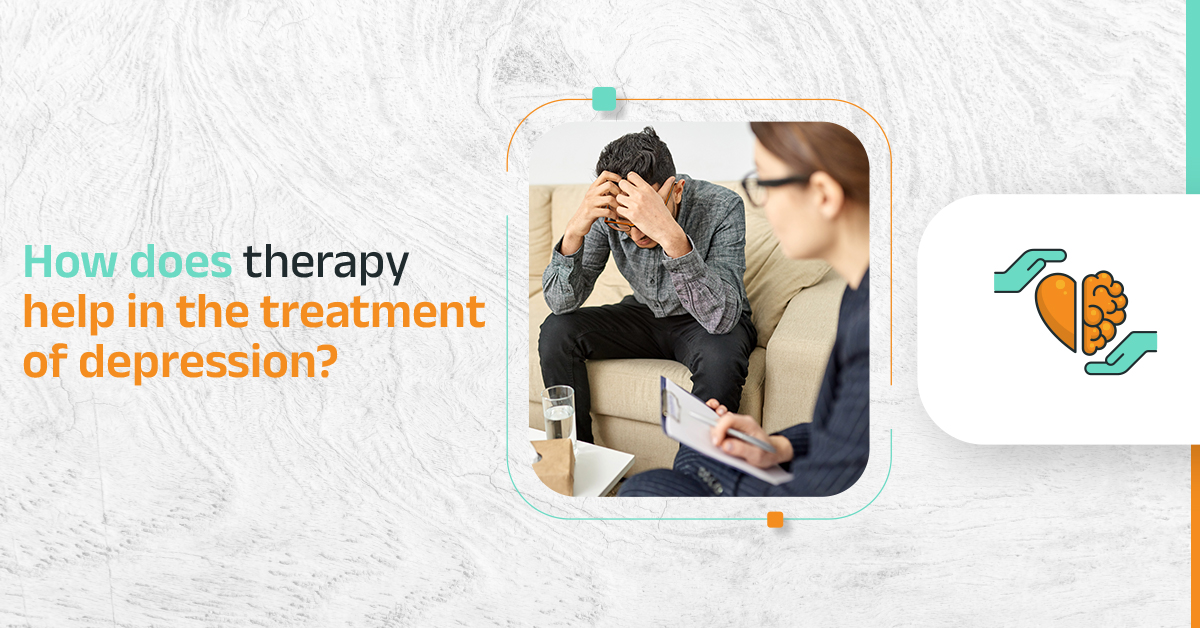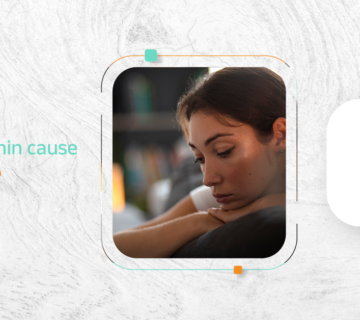Depression is a widespread mental health issue. It can affect anyone, regardless of age, gender, or history. It goes beyond feeling sad. It causes constant despair and a loss of interest in once-enjoyed activities. Therapy is a powerful treatment for depression. But how does therapy help in the treatment of depression? We will delve into this, illuminating different therapy methods and their benefits.
At Grace Healthcare NP, we offer therapy to help you heal from depression. We do it with compassion. Let us support you on your journey. Contact us today.
Understanding Therapy: What Is Therapy for Depression?
Let’s break down what therapy is before diving into how it functions. Consider therapy for depression as a journey. You’d be talking to a trained professional, perhaps a counselor or psychologist. They aim to help you comprehend your emotions and offer tactics to deal with them. Numerous therapeutic approaches strive to enhance your mental health. Discussing depression through counseling allows for a safe space to express your opinions. Identifying what sparks your depression is a crucial advancement in this phase.
How Does Therapy Help in the Treatment of Depression?
How does therapy help in the treatment of depression? A stage is set where you freely unpack your woes and find ways to manage them. It lets you explore your mind, spark positive actions, and boost your will. You and your therapist become a team, jointly rooting for your wellness.
Does therapy help depression? Definitely. It’s usually among the initial suggestions given by health professionals. Therapies for depression, like CBT, aim to change negative thoughts that fuel it. Therapy can reduce symptoms and improve mental well-being. It can do this by tackling these thoughts.
Different Types of Therapeutic Treatments for Depression
Some therapies effectively combat depression. Let’s list them:
- Cognitive Behavioral Therapy: This method spots and alters harmful thoughts. It demonstrates how thoughts impact feelings and actions. For instance, frequently thinking, “I’m not good enough,” means CBT can help. It will challenge that idea and replace it with a more positive thought.
- Interpersonal Therapy: IPT works towards bettering relationships and enhancing communication. This helps, as these are common stress factors that add to depression.
- Psychodynamic Therapy: It explores past events and buried feelings in the subconscious. They are analyzed to see how they impact what one does now.
These depression treatments have different approaches. Their goal is the same: to help you control and lessen your symptoms.
The Benefits of Therapy for Depression
What does a therapist do for depression? They’re like your personal guides. They offer backups and gadgets to help you manage your feelings. Their ears are always open. They have no preconceptions. They’re there to help you plan to handle your symptoms. Let’s look at some major benefits of therapy for depression:
- Improved Self-Awareness: Therapy aids in comprehending feelings and pinpointing depressive triggers.
- Coping Strategies: Therapists guide on handling stress, anxiety, and challenging emotions effectively.
- Support System: A listening ear that gets your battles can be a soothing balm.
- Behavioral Changes: Therapy fosters favorable behavior alterations, like better habits, uplifting mood, and energy levels.
How Can Therapy Help Depression: Practical Techniques
How can therapy help with depression? Therapists harness several methods to assist you in handling depression. Such methods likely encompass:
- Journaling: Writing your ideas and feelings can help you understand and cope with them.
- Mindfulness: Practices like meditation aid in keeping you focused and lessen stress.
- Goal Setting: Work with your counselor to set modest goals. Achieving them will boost your confidence.
A therapist can help combine these methods. It is a strong way to fight depression with therapy.
Effectiveness of Therapy for Depression
Research keeps reminding us of the effectiveness of therapy for depression. Many studies show that therapies like CBT work as well as medication for many. It helps not just by easing signs. It gives people tools to dodge a big, daunting depression comeback. Therapy tackles the root causes of sadness, not just the symptoms. It offers a lasting way to improve. Unlike medication, therapy’s path to healing stands the test of time.
Addressing Common Concerns: Does Therapy Really Help?
Curiosity might lead you to ask, does therapy help depression? Therapy doesn’t provide an immediate fix. But, it offers lasting benefits that go beyond just easing symptoms. Therapy equips people with a better comprehension of themselves and stimulates personal advancement. Many individuals find the skills from therapy useful long after it ends.
Combining Therapy with Other Treatments
Therapy, though potent, works even better when paired with additional strategies. Options like medicine, changing your habits, or support groups can boost your therapy for depression. Remember, a personalized treatment plan that suits your needs is vital.
Taking the First Step: Seeking Counseling about Depression
Beginning therapy might seem scary. Yet, it’s a brave move toward recovery. If you’re battling with depression, consider seeking counseling about depression. A therapist can guide you through different paths and assist you in identifying the right one for you. Remember, you’re not alone in your fight against depression there is assistance out there.
Conclusion
How does therapy help in the treatment of depression? It provides a safe space to explore your feelings, discover the root of your sadness, and learn how to cope. Whether CBT, IPT, or another therapy, the goal is the same. It’s to boost your mood and enrich your life. Investing time in therapy signifies a significant move in regaining your happiness. Considering therapy? Just remember, it’s a helpful resource for tackling and defeating depression.
FAQs
Q. How does therapy help in the treatment of depression?
In therapy, you can delve into your emotions in a secure environment. It’s a place where digging into why your depression exists can happen. Coping methods are created there too. It’s a catalyst for switching up pessimistic thought cycles. It lifts your mood and helps you cope with your symptoms.
Q. Does therapy help depression?
Indeed, therapy works well in dealing with depression. It helps people understand their emotions. It boosts resilience and improves thinking for lasting growth.







No comment